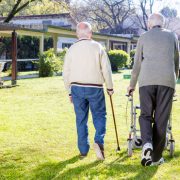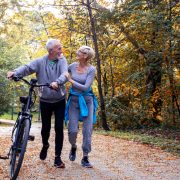How to Keep Up with Physical Activity in Alzheimer’s Care Facilities
We are all aware of the benefits of physical exercise to our bodies. It can enhance mood, reduce depression, anxiety, stress, low self-esteem, improve sleep, and improve quality of life. These benefits are even more crucial for those living in Alzheimer’s Care Facilities.
Exercise promotes the release of chemicals like serotonin and endorphins responsible for enhancing your mood. That way, this will motivate you to socialize, get in touch with family or friends, and lessen the feelings of loneliness and isolation.
Unfortunately, as we age, we tend to slow down due to a variety of reasons. It could be due to weight gain, pain issues, health problems, and other health-related difficulties.
But as a senior adult, physical activities will not only maintain your weight but also boost your energy, protect your heart, and manage your illnesses. In addition, all forms of physical activity are good for your memory and mood.
Even adults in Alzheimer’s Care Facilities can reap the benefits of physical exercise. Although this can be a challenge given the current state that you are in, it is never too late to do simple and enjoyable ways to stay physically active.
Walking
Although it is a whole lot different as you age and simple walking may be a challenge but regular walking can lower the risk for a variety of health conditions.
Spend at least 30-40 minutes walking outside with a loved one. If not, then you may do it on a treadmill with supervision from a professional carer.
If you have trouble walking, you can do simple tasks like sweeping, folding the laundry, vacuuming, or any other light chores. Or you can use a stationary bike, a stretching band, or a rubber ball that you can throw back and forth with other residents in Alzheimer’s Care Facilities.
Weightlifting
Weight training is an excellent exercise to combat bone loss. It is also an effective way to improve cognitive issues. Senior adults with dementia or Alzheimer’s can do light weightlifting using household items, soda, or soup cans.
Low-Impact Aerobics
Alzheimer’s Care Facilities can organize low-impact aerobic workout routines for their residents. These are not only helpful but also great ways to encourage their residents to participate, socialize, and have fun.
Gardening
Mowing, pruning, raking, and watering the plants are simple activities that do not feel like structured exercise. Sweeping or picking up falling leaves will not only tidy the lawn but can be beneficial to residents with memory problems.
Dancing
Most memory care facilities organize dancing parties, but this can be done regularly as not only a form of socialization but regular exercise.
Exercise without a doubt is beneficial for people with Alzheimer’s or dementia. However, these physical activities must be safe. Before starting with an exercise routine, it is suggested to do the following:
- Speak with the person’s primary doctor first
- Make sure the person with Alzheimer’s is with a caregiver or family member when doing outdoor exercise
- Hydration, sunscreen, and protective gear are important for outdoor exercise.
To learn about the memory care facilities at Fallbrook Assisted Living, click here!
Fallbrook Assisted Living is proud to offer its services to Fremont, NE, and surrounding areas and cities: Arlington, Cedar Bluffs, Ames Nickerson, Fontanelle, Arlington, Leshara, Colon, and Hooper



